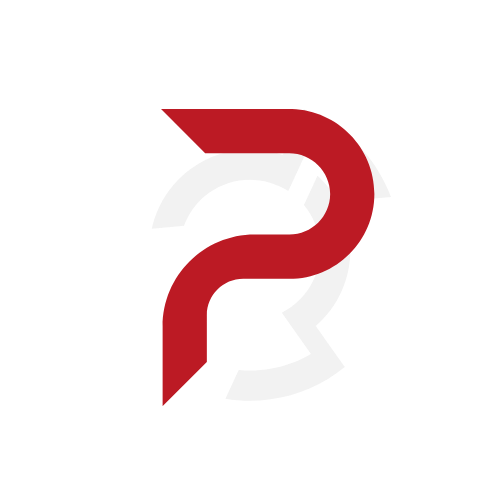Unlocking the Power of AI SEO - Creating Content That's Found By AI
Is your website optimised for AI searching?

The digital landscape is constantly evolving, with search engines increasingly powered by Artificial Intelligence (AI). Staying ahead of these changes is critical for businesses looking to improve their online visibility. This blog explores AI-driven SEO strategies that can revolutionise your website’s search performance, ensuring you remain competitive in a dynamic environment.
What is AI SEO?
AI SEO refers to leveraging Artificial Intelligence technologies and tools to optimise your website for search engines. It involves using algorithms, machine learning, and natural language processing to analyse, predict, and adapt to search engine requirements. The result? A more efficient, accurate, and impactful SEO strategy that keeps your website relevant in an increasingly AI-oriented world.
From automated keyword research to content optimisation, AI offers countless opportunities to stay ahead of the curve.
Why AI-Powered Search Matters
Modern search engines such as Google now rely heavily on AI algorithms like RankBrain and BERT to understand queries and deliver more contextual, precise results for users. This makes traditional SEO approaches less effective if they're not aligned with these advancements. To keep up, crafting an AI SEO strategy has become a necessity rather than a luxury.
If your content doesn’t align with AI-powered search parameters, your chances of being discovered by potential audiences drop significantly.
Key AI-Driven SEO Strategies
Improve SEO to be Found by AI-Powered Searching
To attract attention in a search landscape driven by AI, your website must prioritise context and relevance over repetitive keywords. Here’s how:
- Semantic Search Optimisation: Focus on search intent. Ensure your content answers users’ questions comprehensively and naturally.
- Structured Data Markup: Implement schema markup on your website to help AI understand your content better and display rich results, such as featured snippets or knowledge panels.
- Voice Search Readiness: Optimise for conversational queries, as voice assistants like Siri and Alexa rely on AI models that favour natural speech.
Amend and Refresh Your Content
AI demands fresh, high-quality content. Regular updates show search engines that your site remains relevant. Here’s how to approach content amendments:
- Update with New Information: Add the latest statistics, trends, or developments to your older posts.
- Improve Readability: AI evaluates content readability. Break up long paragraphs, improve formatting, and write in a clear, concise manner for better UX.
- Perform Keyword Gap Analysis: Use AI-powered tools like Semrush or Ahrefs to identify missing SEO opportunities and integrate those keywords naturally.
Refine Language Styles and Clarity of Voice
AI now evaluates more than just keywords; it measures the quality and clarity of language too. Content creators should:
- Focus on Simple Language: Write as though explaining ideas to a beginner. Clear, accessible text ranks well when evaluated by AI.
- Adopt Conversational Tones: Optimise for NLP (Natural Language Processing) by embedding conversational styles that reflect how users phrase voice or text queries.
- Use Generative AI like Jasper or ChatGPT to refine tone and proofread for grammatical accuracy.
Leverage Generative Search
Generative search, which uses AI to create dynamic, multi-layered search results, is becoming common across engines like Google and Bing. Embedding this into your SEO plan can boost success:
- Answer Complex Queries: Make sure your content does more than scrape the surface. Provide in-depth answers and insights that align with complex user queries.
- Generate Supporting Media: Add AI-optimised images and videos to content. Tools like Canva’s AI features can help with this.
- Optimise for AI Summaries: AI summarises long-form content within search snippets. Structure content with headings, summaries, and bullet points tailored for these formats.
Competitor Insights
Lessons from Semrush, Neil Patel, and Others
Our review of industry leaders provides actionable inspiration:
- Semrush Approach: Semrush outlines in-depth use cases of AI tools for analysing search trends. Following their lead, focus on AI for predictive analytics and competitor research.
- Neil Patel's Playbook: Neil Patel emphasises actionable advice, often through real-life case studies. Take a similar approach to demonstrate tangible outcomes in your content.
- Search Engine Journal's Technical Insights: Technical SEO underpins content visibility. Optimise crawl efficiency, fine-tune site architecture, and ensure mobile responsiveness, as seen in Search Engine Journal’s examples.
- HubSpot’s Marketing Spin: HubSpot seamlessly integrates SEO with marketing strategies. Incorporate storytelling and buyer behaviour analysis into your optimisation strategy for more impact.
Key Takeaways
AI SEO represents a powerful shift in optimising for search performance. It’s not just about gaming the system with keywords anymore; it’s about showing your website’s relevance, clarity, and connection to user needs.
Summary of AI SEO Best Practices:
- Focus on search intent rather than specific phrases.
- Regularly update and optimise content for readability and relevance.
- Use schema markup and conversational language to boost search visibility.
- Adapt your SEO strategy to accommodate generative and voice searches.
- Learn from established competitors and refine strategies based on industry insights.
Take the First Step Today
Understanding AI SEO is just the beginning. To stay ahead, businesses must actively apply these strategies and tools to their operations. If you'd like to explore more about incorporating AI SEO into your content strategy, start your optimisation process today and ensure your website doesn’t just survive in the search ecosystem, but thrives.
Take control of your SEO today and unlock your website’s potential with AI optimisation. Talk to the Puzzle Creative team for help and support.










